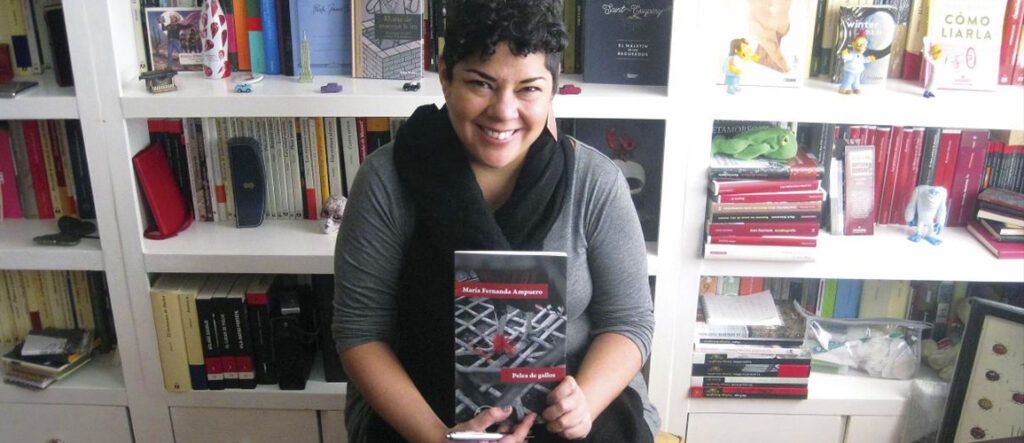

Key cultural manifestations of the connections of trauma, biopower and the posthuman are the figures of the cyborg, the zombie and the surrogate, which undermine key dualisms of the Western philosophical tradition. The discourse of posthumanity, characterized by its opposition to, and transcendence of humanism foregrounds questions regarding what constitutes the human, exploring the boundaries of subjectivity and the body. The object of prominent philosophical and critical attention in the last decades of the twentieth century are the theories of trauma and the posthuman, which have become key frameworks to approaching contemporary culture and its artifacts. Sección de Filosofía, 27-28 de febrero 2019. III Simposio Internacional: Precarización de la vida, violencia y exclusiones sociales. The discussion will be entirely in Spanish.Feminist Fiction. Su primer libro de cuentos, Pelea de gallos (2018), le ha situado como una de las voces más importantes de la literatura latinoamericana actual, y ha sido traducido a distintos idiomas. En 2016 ganó el premio Cosecha Eñe de relato. Colabora con numerosos medios internacionales y hasta la fecha ha publicado dos libros de crónicas, Lo que aprendí en la peluquería y Permiso de residencia.

María Fernanda Ampuero nació en Guayaquil, Ecuador, en 1976 y estudió literatura. ‘Y si un perro, que es un ser de poco entendimiento, sigue fielmente a quien le acaricia la cabeza y el lomo, ¿cómo no ibas tú a seguirlo a él hasta el mismísimo infierno? ❼ómo no ibas a hacer hasta lo imposible por hacerlo feliz, por ayudarlo a cumplir sus promesas? Así, como un perro agradecido, te sentabas a sus pies a mirarlo, a escucharlo arrobada, loca de amor, como si de su boca salieran uvas, miel, jazmines, pájaros.’. This month, Tertulia de Literatura y Cine will discuss a short story by the Ecuadorian writer María Fernanda Ampuero (1976), “ Pasión ”. Tertulia is an event for people who are currently studying Spanish (intermediate to advanced levels), as well as for people who want to practise their Spanish. It then comes to a close with a tutor-led audience interaction aimed to stimulate a discussion on the historical, political and social realities linked to the stories. Each event starts off with a reading session (short stories or poetry) or the viewing of a film in Spanish language. During the Tertulia, participants take part in a guided discussion in Spanish about social, historical and political aspects of the Spanish speaking world through literature and films, with the occasional guest speaker. This event is organised by the ‘Tertulia de Literatura y Cine’ series run by María Muradás-Taylor (Lecturer in Spanish) at the Department of Language and Linguistic Science.


 0 kommentar(er)
0 kommentar(er)
